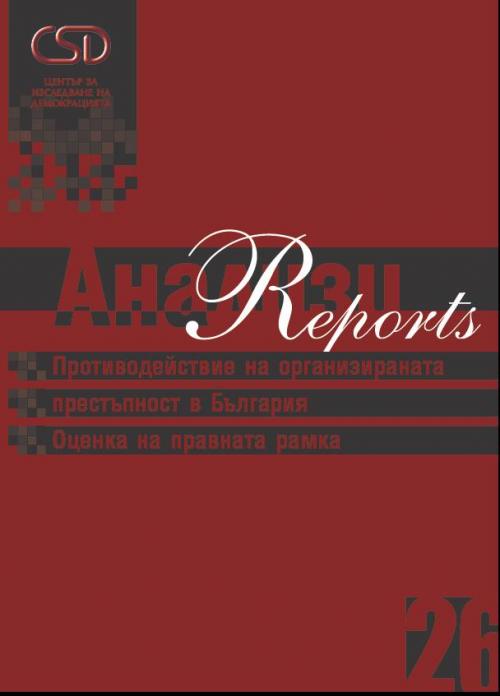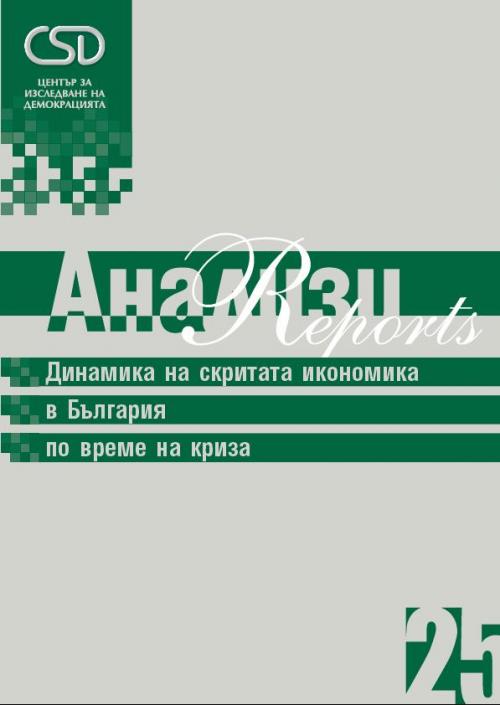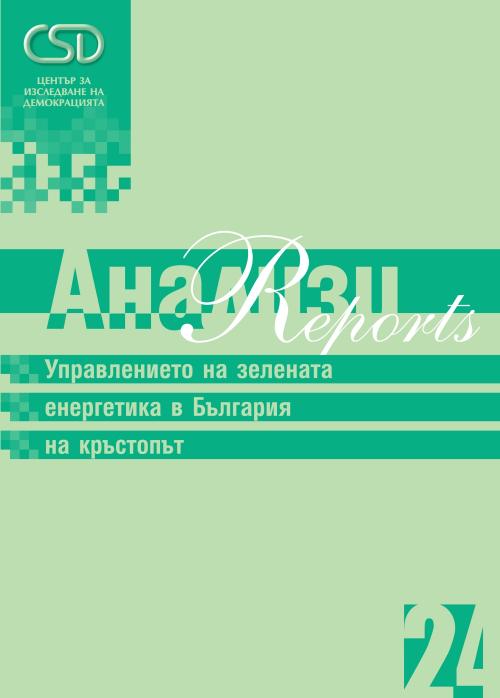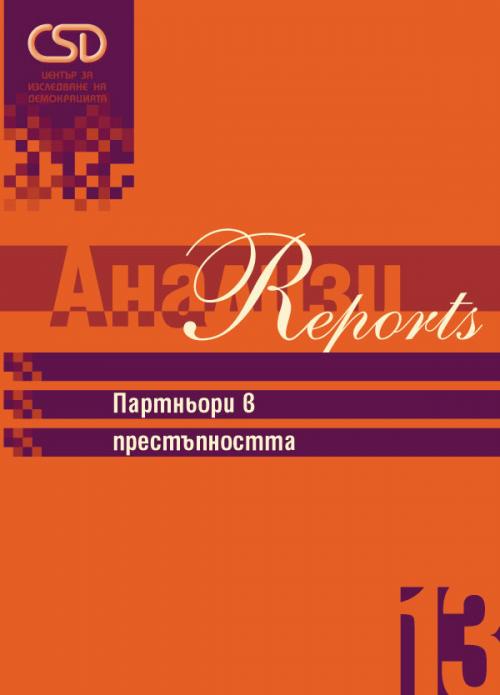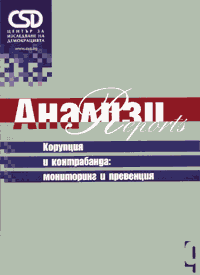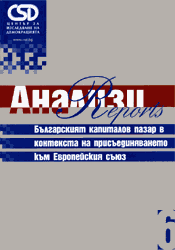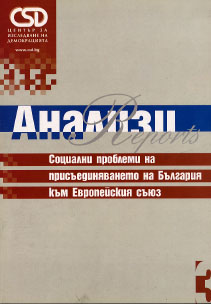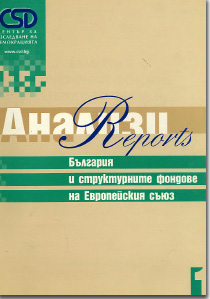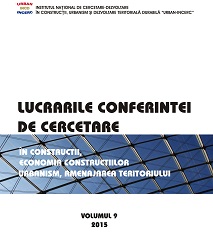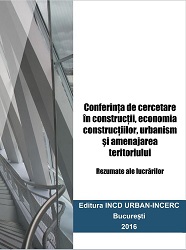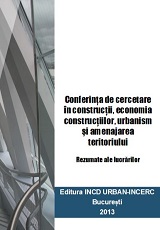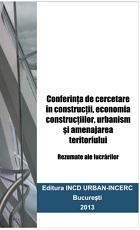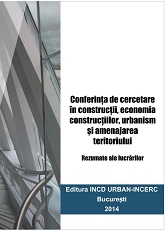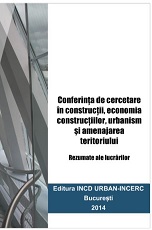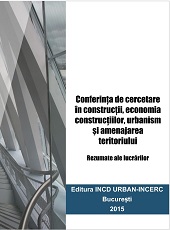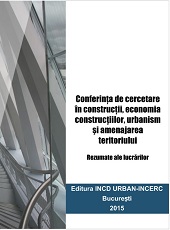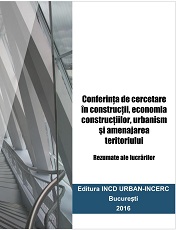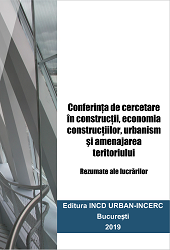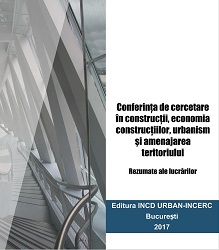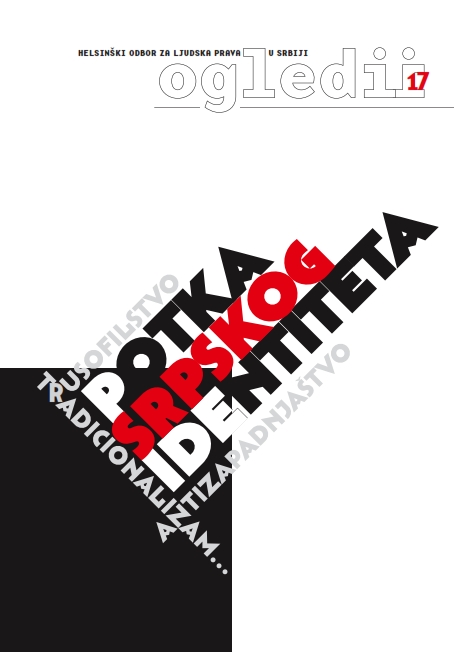Author(s): Author Not Specified / Language(s): Bulgarian
This is the second updated edition under the same title, published by the Center for the Study of Democracy of its Reports/ Analyses series to be distributed among participants in Regional Coordination Meeting of Subtable "Justice and Home Affairs" of Stability Pact Working Table III, held in Sofia on October 3rd, 2000.
This latest analytical report is the outcome of the efforts of non-government organizations and state institutions, and of independent experts and journalists as well within the framework of the Coalition 2000 process. Launched in 1997, Coalition 2000 strives to support the restriction and curbing of corrupt practices in Bulgarian society, including regular monitoring of public perceptions and attitudes towards corruption.
The illicit trafficking growth, as one of the most important sources of local "gray economy" throughout the 90ies, was caused by a number of international and internal factors, the most crucial of which being the weakening of the post-communist state and the spread of corruption practices among state officials.
The threat on society posed by the interlacing of the interests both of crossborder crime perpetrators and the associated corrupt public officials (customs officials being the most alarming example according to public opinion), became a serious public concern. This initiated the necessity to analyze the phenomenon and to identify adequate monitoring and counteraction measures, moreover this type of crime finds further confirmation in experts' estimate that a large portion of the local gray economy is related to smuggling of goods and the proceeds of the respective unlawful activities.
The report examines the processes of illegal trafficking and the related corruption in Bulgaria, identifying their typical manifestations and the practical assessment, prevention and control strategies and methodologies in three sections as follows:
• an analysis of crossborder crime in Bulgaria during the 90ies;
• a review of the sociological and statistical methods of measuring illicit trafficking;
• Practically oriented proposals with the aim of curbing corruption and trafficking.
The first section emphasizes on the combined impact of trafficking and corruption in the context of current criminological environment in this country and the increasing crossborder nature of crime. The problem has been deliberately set in the national context, seemingly isolated from global crime.
The second section of the paper (Monitoring the illegal trafficking) proposes two relevant methods of measuring the contraband merchandises imported in the country and the sample survey methods for assessing of smuggling. One of them, the "mirror statistics" method, compares overseas and local official data regarding the export/import of this country. It is applied to assess the scope of the gray economy as a whole, and to locate the main "contraband markets" in Bulgaria. In addition, an original mechanism is developed, which combines monitoring through sample interviews, with exerting control over contraband goods. This mechanism is oriented towards future cooperation between local NGOs and public authorities (customs and police).
The third section of the paper consists of proposed measures to be undertaken to curb illegal trafficking and corruption in this country. It is coined after the Coalition 2000 Anti-Corruption Action Plan and outlines the synergy of public sector reform and civil society anti-corruption initiatives. It also stresses on the importance of enhancing international cooperation in the framework of Bulgaria's EU accession.
Statistical data provided by the Customs Agency have been used in this second updated edition of the paper. A number of recommendations by the Agency's experts have also been taken in consideration.
More...
